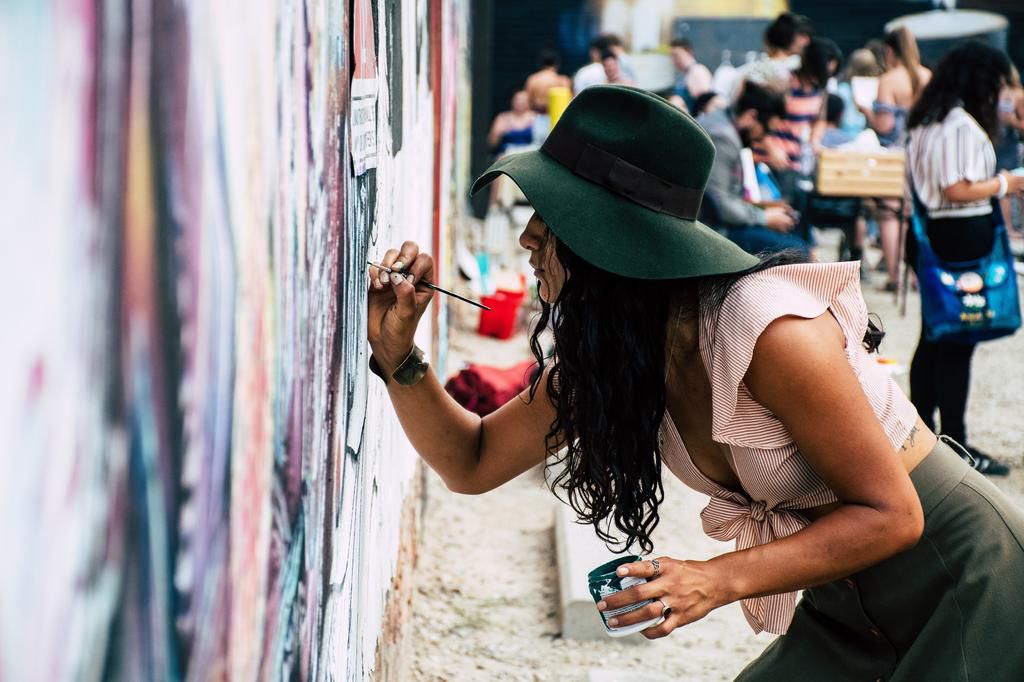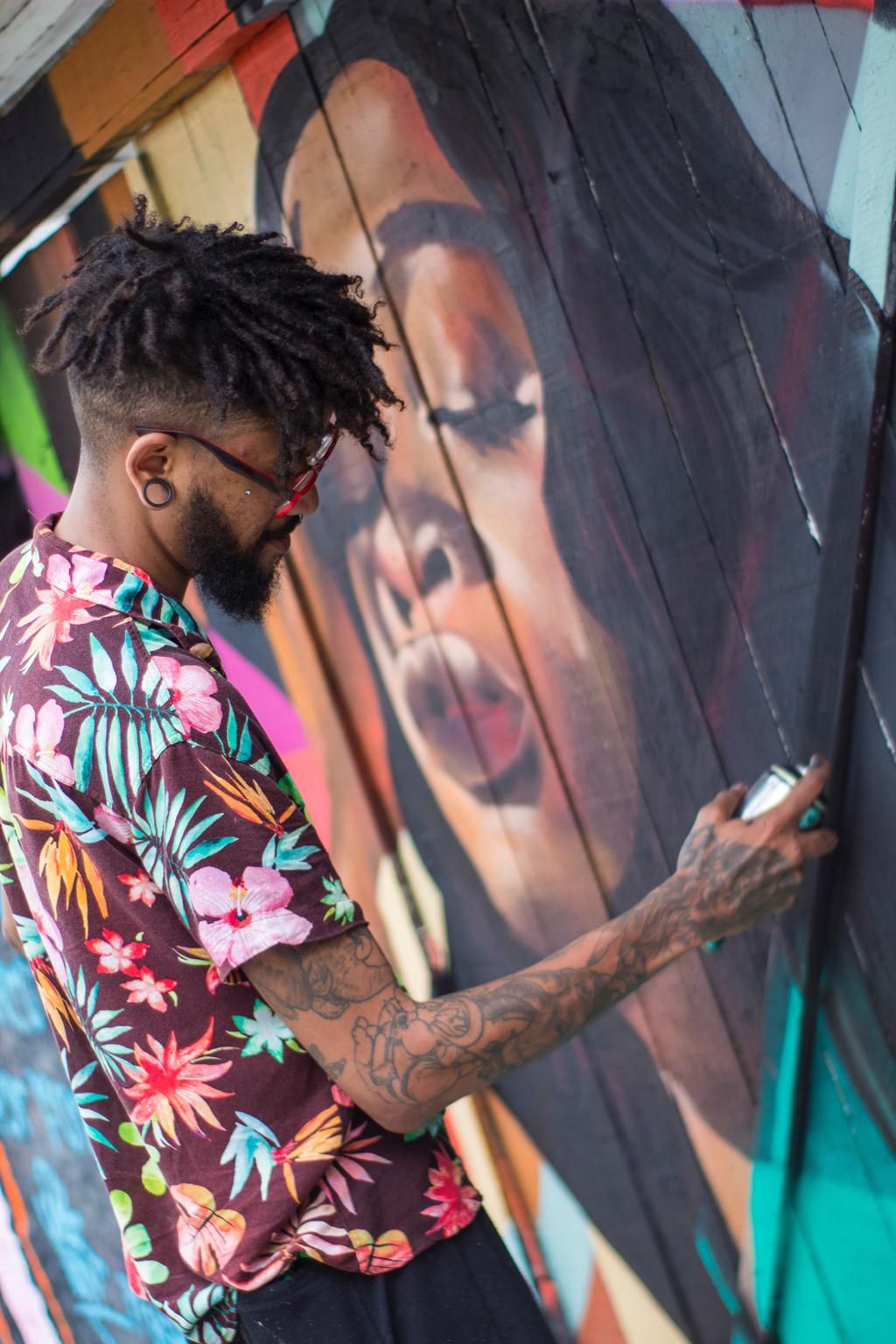How to make a living as an artist
)
A starving artist is an artist who sacrifices material well-being to focus on their artwork. But it is no virtue in suffering unnecessarily for wanting to make art. Stenhouse's advice may seem contradictory, "it may also be wrong and/or uncertain. That’s because I live in THE WORLD," he said.
How to make a living as a starving artist
Imagine if we all became artists
1. Make good art
"Many artists attempt to legitimise themselves by setting themselves up as a company, or making a fancy website, or creating an infrastructure around them, but the only thing that will ever legitimise you as an artist is the art that you make."
2. See your art as a political act
"I have always viewed the attempt to make a living as an artist as a deeply political act. For me, being an artist is about playing a role in a philosophical shift that preempts political change. The act of being an artist and being paid for it shifts how we think about value, how we think about labour and how we view ourselves as human beings. It's important that you make a living making the art that you make, not the art that gets you paid or the art that other people want you to make because then it's no longer a political act. Stick to your principles, make the art you want to make and then make a living from it."
3. Find cheap rent
"The easiest way to make a living is to make sure a very small amount of money counts as a living. The hardest challenge on the way to making a living as an artist is the point at which you make the jump. There is a point where we must leap into the unknown and stop earning money from our other jobs and it's hard to know how/when to do this. Reducing your living costs pragmatically allows you to reach this jumping-off point much sooner and you’re a lot lower to the ground should you not quite make it."
4. Set your agenda
"There is no model. You are in charge of designing the model for how your art will make you a living. Many people will tell you that in order to make a living you have to ‘get real’ and ‘diversify’ or whatever. Don’t listen too much to these people. Start with the art, then design a way to make it pay. This will mean forcing the agenda in lots of ways."
5. Make friends
"Otherwise known as networking. If you don’t like someone, don’t be their friend (like real life!)."

6. Call yourself an artist*
"It took me years to summon up the courage to call myself an artist. This is just fucking wrong-headed. Call yourself an artist immediately. *or theatre maker, or director, or jazz poet or whatever it is you want to self-define as."
7. Dive into the work of others
"A very simple step but vitally important. Go and see as much work as you can. Go to all the shows in your local theatre, all the exhibitions in your local gallery, go to music gigs, read novels, travel and see art in different countries, watch TV and films, and see as much as you can in as many different formats. Be a massive geek about it. Good artists who say ‘I never see any other artists work’ to make themselves look cool and authentic are BIG FAT LIARS."
8. Be patient
"It's massively rare, if not totally unknown, for artists to pop out of nowhere with beautiful art. The culture of ‘next big thing’ and artists ‘breaking through’ is a falsehood. It takes a long time to learn how to make art and you will make lots and lots of bad art before you make anything good. So take your time, make the bad art, and be honest about where you’re at. If you’ve just left university it's unlikely you can make world-beating art. Place yourself in different contexts, go and see the world, do some living, make lots of work and grow your practice slowly. Be patient with yourself."
9. Do it yourself
"No one is going to do it for you."
10. Talk your own language
"Artists shift the way we think about the world. That includes shifting the way we think about the art world. Don’t feel like you have to talk the language of the funders, the venue programmers, other artists, or even your audience. Talk your own language."

11. Share
"Small pots of money and limited opportunities make for a seemingly competitive environment but don’t be fooled. You will be stronger and you will make better art if you share. Share information, share knowledge, share ideas, share successes and failures, share your fears and your worries. Set up an artist collective and share resources."
12. Recognise jealousy
"ART jealousy is a useful tool. If you feel jealous of another artist it can help you acknowledge what it is you want your art to do. But make sure you know your jealousy comes from an appreciation of the work of that artist*. Don’t resent other artists their successes.
*Sometimes artists make shit work and do make a living and that can make us jealous too. There is clearly a shortage of good art (because it's v.hard to do) so continue trying to make good art as your priority. Don’t be fooled into thinking you have to make shit art in order to make a living. Seeing shit art can help you make better art so thank them for it, don’t resent them."
13. Work hard (but know what work is)
"You need to be a badass maniac to make a living from your art. The task will consume you. It is a fucking mountain of graft. But don’t perform your hard work for other people's benefit. Don’t feel like you have to prove yourself by working too hard. Learn what work can look like if you’re an artist. Emailing is not the only kind of work. Conversation can be work, going for a walk can be work, sitting down and thinking can be work. There are some assumptions about what constitutes work that as an artist you can be responsible for changing. It's also important to know that you are not a worse artist if you aren’t working. Taking 3 months off to go to Asia, or taking the day off to watch the whole of Friday Night Lights on DVD could be the best thing you ever do for your art."
14. See limitations as possibilities
"Making a living as an artist is hard to do. Making art is hard to do. There are lots of limitations. But limitation is an important tool in the creative process so you can use the fact that it's hard to your advantage. Limitation will impose structure and rules on your process which can actually facilitate more freedom of thought elsewhere. Don’t believe the ‘starving artists make better art’ bullshit (peddled by people who should know better) but it's ok to have some hurdles (and hurdles are one thing you can count on)."
15. Make the work you want to make
"Don’t let ANYONE tell you what kind of work you should be making. EVER."
CHECK OUT: These 6 cheap travel options

16. Get paid
"Some places might want to put on your art. Some of these places will be institutions that pay salaries to their staff and receive income from subsidies, ticket sales, philanthropy and pre-existing assets. Some of them will be artist-led projects run on alternative models, exploring the different kinds of value we might place on art. You need to recognise which is which. Don’t let yourself be exploited by not getting paid. If there is a system that is paying people enough to live and your work is needed by that system, you deserve to be paid enough to live too. There may be people who try and convince you otherwise. Do not listen to these people."
17. Talk to artists who make a living and ask them how they do it
"I’ve been making a living solely from Action Hero for 5 years (ish). I count this as one of my proudest achievements. But 5 years is not that long and the sands shift every day. I talk a lot to other artists who make a living to help me find ways to navigate the tricky territory and find new models all the time to allow it to continue. Some artists have been doing it for 20 years or longer. They are good people to talk to. It's not easy but I keep trying because I believe we should expect that artists can make a living from their work. We don’t have to if we don’t want to of course. But it should be possible."

)
)
)
)
)
)